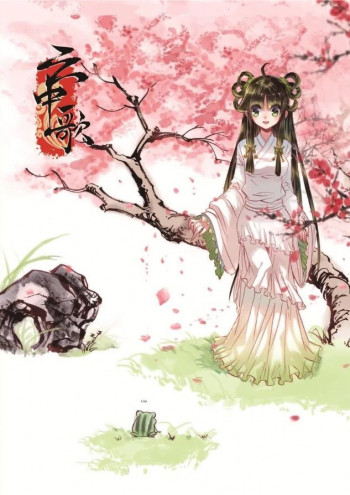Gates of Paradise, the fourth installment in V.C. Andrews' Casteel series, is a haunting exploration of loss, longing, and the inescapable grip of family legacy. Following the tragic events that claimed the lives of Heaven and Logan, the narrative shifts focus to their daughter, Annie Casteel Stonewall, who finds herself navigating a world filled with grief and uncertainty. Andrews masterfully weaves a tale that is both captivating and unsettling, drawing readers into the dark and twisted world of the Casteel family.
The novel opens with Annie grappling with the aftermath of her parents' death. Orphaned and physically impaired, she is taken to Farthinggale Manor, a place that is both a sanctuary and a prison. Here, the possessive Tony Tatterton looms large, embodying the oppressive weight of family secrets and expectations. Annie's emotional turmoil is palpable as she yearns for the love and connection she once shared with her half-brother, Luke. Their bond, rooted in childhood innocence, becomes a beacon of hope for Annie amidst the shadows of despair that threaten to engulf her.
One of the most striking themes in Gates of Paradise is the exploration of identity and belonging. Annie's journey is not just about coping with loss; it is also about discovering who she is in the absence of her family. The novel delves into the complexities of familial ties, illustrating how they can both uplift and suffocate. Annie's longing for Luke serves as a reminder of the love that once defined her existence, yet it also highlights the isolation she feels in a world that seems to conspire against her happiness.
Character development is a hallmark of Andrews' writing, and in this installment, she excels in crafting multi-dimensional characters. Annie is portrayed with a depth that resonates with readers. Her vulnerability is juxtaposed with a fierce determination to reclaim her life. As she uncovers the mysteries surrounding her family's past, Annie evolves from a passive victim of circumstance to an active seeker of truth. This transformation is compelling and serves as a testament to the resilience of the human spirit.
Luke, though physically absent for much of the narrative, remains a pivotal figure in Annie's life. Their relationship is steeped in a sense of forbidden love, echoing the classic themes of star-crossed lovers. The tension between their desire for one another and the societal constraints that bind them adds a layer of complexity to the story. Andrews captures the essence of youthful passion and the heartache that comes with it, making their connection both poignant and tragic.
The setting of Farthinggale Manor is almost a character in itself, steeped in gothic elements that enhance the novel's eerie atmosphere. The manor, with its hidden corners and dark secrets, serves as a metaphor for the Casteel family's tumultuous history. As Annie explores the woods surrounding the manor and discovers Troy's cottage, the narrative takes on a more mysterious tone, inviting readers to ponder the implications of the past on the present. The cottage symbolizes both refuge and danger, embodying the duality of Annie's quest for understanding.
Andrews' prose is rich and evocative, painting vivid imagery that immerses readers in Annie's world. The emotional weight of the story is palpable, as Andrews deftly navigates themes of grief, betrayal, and the quest for redemption. The pacing of the novel is well-balanced, with moments of introspection interspersed with suspenseful revelations that keep readers engaged. Andrews has a knack for creating cliffhangers that leave readers eager for more, and Gates of Paradise is no exception.
Another significant theme in the novel is the concept of fate and destiny. The Casteel family is often portrayed as being cursed, trapped in a cycle of tragedy and despair. Annie's struggle against this perceived fate raises questions about the extent to which individuals can shape their own destinies. As she confronts the "Casteel spell," Annie's journey becomes a metaphor for breaking free from the chains of the past and forging a new path forward. This theme resonates with readers who may have experienced their own struggles with familial expectations and the desire for autonomy.
In comparison to other works by Andrews, such as Flowers in the Attic, Gates of Paradise shares similar motifs of forbidden love and the complexities of family dynamics. However, this installment stands out for its focus on the next generation and the lingering effects of past traumas. Andrews' ability to intertwine the past with the present creates a rich tapestry that invites readers to reflect on the cyclical nature of family legacies.
Overall, Gates of Paradise is a compelling addition to the Casteel series, offering a blend of gothic romance, family drama, and psychological depth. V.C. Andrews has crafted a narrative that is both haunting and hopeful, exploring the intricacies of love, loss, and the quest for identity. Annie's journey is one of resilience and self-discovery, making her a relatable and inspiring protagonist. For fans of Andrews and newcomers alike, this novel is a must-read that will leave a lasting impact.
























Reviews 0
Post a Reviews: